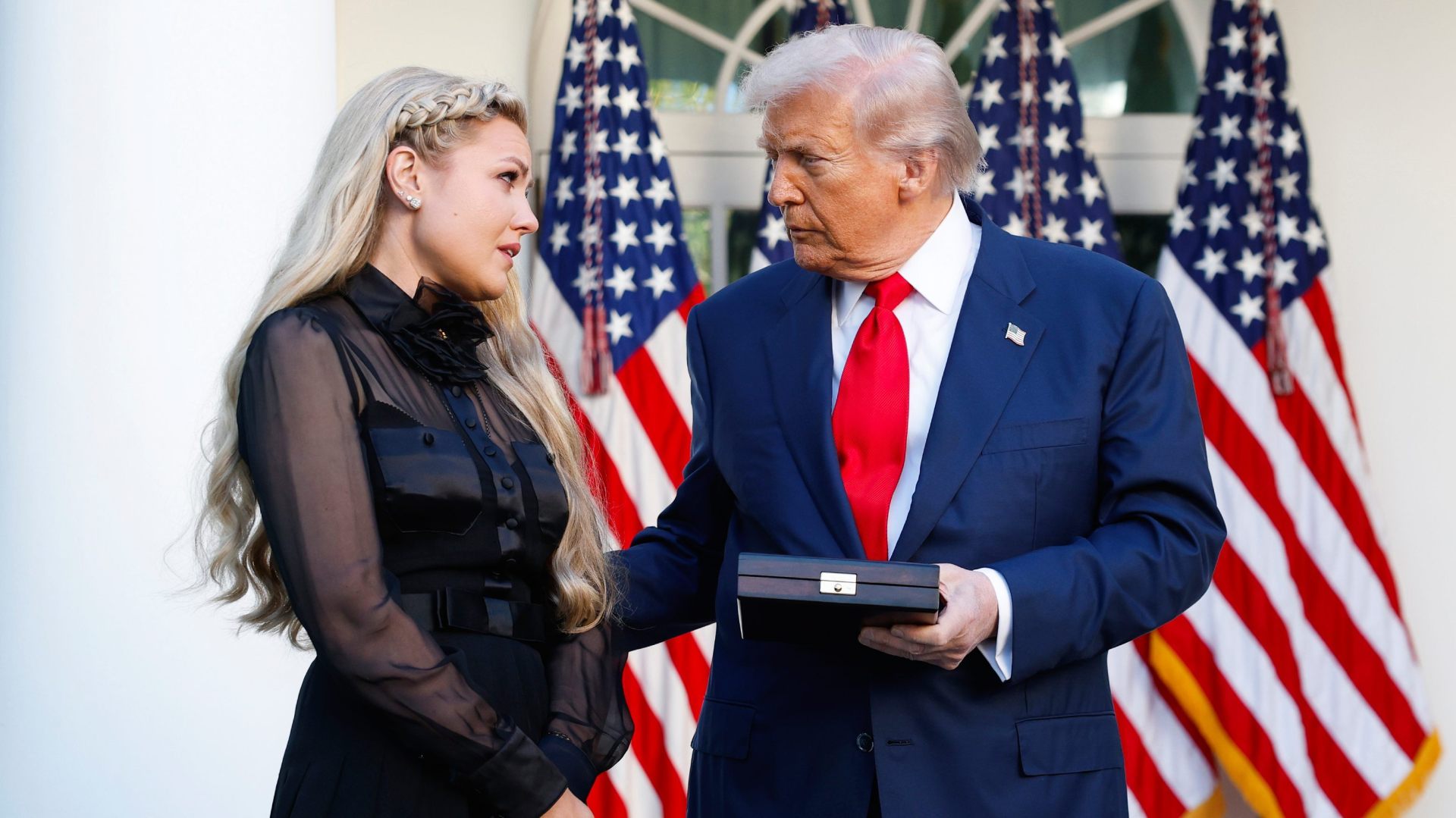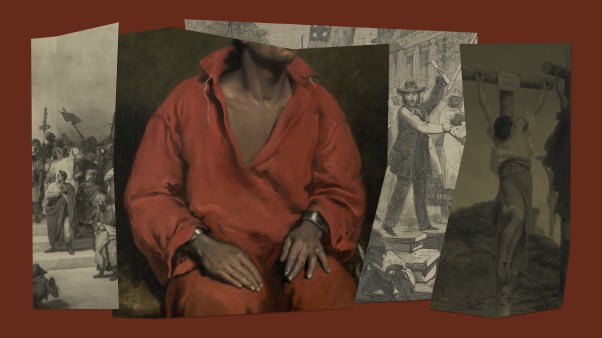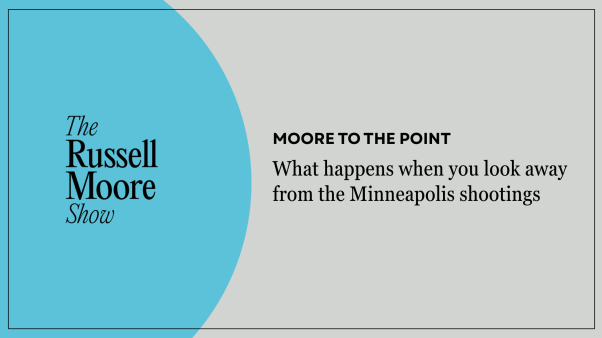President Donald Trump posthumously awarded the Presidential Medal of Freedom to Charlie Kirk in a ceremony on what would have been his 32nd birthday Tuesday.
The medal, bestowed at the president’s behest, represents the highest honor the US government grants a civilian. Kirk was a staunch Trump ally who inspired many young Americans to get involved in conservative politics.
“We’re entering his name forever into the eternal roster of true American heroes,” Trump said to the audience of politicians, conservative activists, and Kirk’s family and friends gathered at the White House Rose Garden.
In his remarks, the president once again characterized the Turning Point USA founder differently than his widow, Erika Kirk, did. She received the award on her husband’s behalf. Trump described Kirk as a tough political fighter who “didn’t like losing.”
“I heard he loved his enemies. And I said, ‘Wait a minute, is that the same Charlie that I know?’ I’m not sure. But I didn’t want to get into it,” Trump said, referring to Kirk’s memorial service last month.
In her eulogy last month, Erika Kirk forgave her husband’s killer and said that Charlie wanted the best for those who opposed him. At the time, Trump said he didn’t have the same attitude.
On Tuesday, she once again reiterated Kirk’s posture toward political adversaries. “Surprisingly enough, he did pray for his enemies, which is very hard, but he did,” Erika Kirk said at the ceremony. “I saw him do it. He never did it in front of anyone else, but I can attest to that.”
John Fea, a historian at Messiah University, said Erika Kirk’s “willingness to forgive her husband’s killer is what the gospel is all about. … She beautifully displayed the heart of Jesus Christ at the memorial service.”
Fea said he’s seen from other political figures an impulse to “give lip service to ending political violence while continuing to play the blame game.” He called the president’s comments saying he personally hated his opponents a striking example: “In Trump’s fusion of evangelical Christianity, nationalism, and MAGA politics, the latter two win out over the gospel.”
Kirk’s fatal shooting last month at a Utah college intensified concerns around divisive political rhetoric and retaliatory violence. The tragedy galvanized Republicans, who said they wouldn’t let Kirk’s efforts to mass-mobilize younger generations go to waste. Turning Point USA has doubled since Kirk’s assassination, with TPUSA chapters on college campuses going from 900 to 1,690, according to TPUSA spokesman Andrew Kolvet.
While some evangelicals have lauded Kirk’s public witness and attributed a recent bump in church attendance to his legacy, others (including Black clergy) have denounced his killing while critiquing certain inflammatory statements.
Fea noticed in the wake of the event that Kirk’s Christian fans have seemed “torn” by his widow’s stance: “They praise her for offering forgiveness to the shooter, but their social media feeds are filled with anger against the ‘left,’ who they believe is responsible for his murder.”
Michael Wear, president and CEO of the Center for Christianity and Public Life, said he hopes the grief and sadness many Christians feel doesn’t get lost amid public figures’ attempts to utilize the tragedy for political ends.
“Just because there’s disagreement on exactly how positive Kirk’s influence was doesn’t mean that there isn’t broad Christian agreement in rejection of his murder and in basic appreciation for him as a brother in Christ,” Wear said. He hopes this consensus won’t be compromised by “a whole political machinery that sees that common ground and wants to take advantage of it by expanding the parameters of what honoring Charlie Kirk has to look like.”
Last month, the US Senate approved a resolution marking October 14 as a national day of remembrance for Kirk. The resolution does not make the day a national holiday but encourages “programs, activities, prayers, and ceremonies that promote civic engagement and the principles of faith, liberty, and democracy that Charlie Kirk championed.”
A similar bill introduced in the House remains stuck in committee. The Congressional Black Caucus opposed the recognition as “an attempt to legitimize Kirk’s worldview—a worldview that includes ideas many Americans find racist, harmful, and fundamentally un-American.”
Attendees Tuesday included Vice President JD Vance, several cabinet members, and conservative media personalities including Sean Hannity and Tucker Carlson, Jack Posobiec, and Benny Johnson. Several pastors also attended, including Greg Laurie of Harvest Christian Fellowship and James Kaddis of Calvary Chapel Signal Hill.
Laurie said on social media that a cross engraved on the back of the medal is “in recognition of Charlie Kirk’s strong faith in Christ.”
During the award ceremony Trump discussed Middle East geopolitics, the US–Mexico border, the 2024 presidential election, and the assassination attempt. Erika Kirk thanked him for recognizing “a life lived for defending freedom…. That’s what Charlie fought for until his last breath.”

















